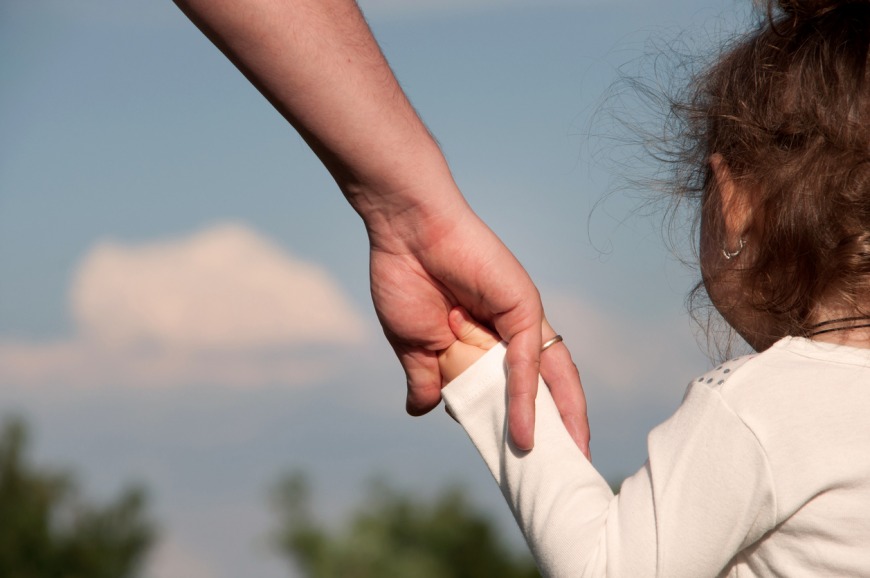Child Custody in the UAE: What You Should Know
It's important that parents understand the custodial rights of children in the UAE
10 September 2017

Between the skyscrapers and the vast desert of the United Arab Emirates is a comprehensive legal system that governs all aspects of living here - with one area unbeknownst to many expats and residents living here, which is the custodial aspect of family law Dubai and in the UAE.
Child custody in the UAE is known as 'Hadana'
This is an Arabic phrase meaning 'holding a child close to one's heart by protecting and educating' them. And the UAE's law makes a clear distinction between the roles of the 'guardian' and 'custodian' (as explained below).
As part of local traditional gender roles, the Hadana applies to the mother - who would then generally be given the custody of her child(ren), while their father would become the guardian.
However, there are often circumstances nowadays where a child's custodial rights in the UAE may become more complex. Especially when there are more than 200 different nationalities living in Dubai and the UAE - with several thousands of expatriates making up that number.
To help explain where the UAE's law stands on custodial rights of a child in the country, we asked Legal Consultant Carol S. Alderson of Alderson and Associates to explain.
What does the UAE law say about child custody after a divorce?
The process of a divorce is a horrible time for all involved, there's no denying that. But when you're both expats living in a country that isn't your home, things can tend to get a little tricky... Especially as expats in the UAE have options for how they want their divorce to pan out.
As Carol explains, "the UAE Personal Affairs Law 2005 clearly states that expatriates can elect to use their home country laws when it relates to such matters as family, guardianship of children, and inheritance matters, however if the home country laws conflict with Sharia Law, the courts will impose Sharia Law."
If the latter occurs, then Sharia Law dictates that the custody of a child - i.e. who the child lives with - is with the mother, until they reach 11 years old if a boy, or 13 years old if a girl.
"If a child chooses to apply for custody after those ages, he will most likely succeed in this application", Carol continues.
Understandably, there are instances in which custody of a child in the UAE may be transferred to the father before these ages if there are "issues of adulterous behaviour on the part of the mother, or where substance and alcohol abuse occurs."

What's the difference between guardian and custodian in the UAE?
Unbeknownst to many, there is in fact a huge difference between who and what a guardian is, and a custodian in the UAE. The law differentiates each very separately when handling divorce cases and child custody here.
As per UAE law, "the difference between guardian and custodianship in the UAE is [that] a guardian - normally the father - is responsible both financially and in every other way for the upbringing and well-being of his children", Carol clarifies.
Which means, a child's guardian is responsible for where the child lives, their education, their financial needs, education, housing and general living expenses.
On the other hand - custodianship, which usually lies with the mother, "merely dictates that the children live with her until [they reach] the age of 11 for boys, and 13 for girls", Carol explains.
There are circumstances where the mother can be both, for instance if the father is not working or where the mother is the "main breadwinner".
"Whilst this does not entirely negate the responsibilities for the father, it does give the mother further powers in a quayside guardian role."
Where does the UAE stand on joint custody... Is it available in the country?
The general belief is that joint custody is not a possibility in the UAE, however as Carol explains, "if the father and mother are able to agree with whom the child(ren) should live and what visitation occurs between the two of them, and that it is recorded in an agreement electing their home country to be used for the purposes of determining such an agreement, the UAE Courts are capable and have made orders along those lines."
"It is sometimes the case that the parents, because they live in close proximity to each other, agree a joint custodial agreement on a sharing basis i.e. that the children spend one half of each week with each parent, or even on some occasions alternative weeks with each parent."
However it must be made clear - this type of joint custodial arrangement is only available where "such laws apply in the parents' home countries", Carol clarifies.
Under Sharia Law, it is quite clear already who should be the custodian of the child(ren).

If you are an expat who elects to use their home country laws to determine the custodial rights of their child in the UAE, it is important to be mindful that judges in the UAE's courts are Sharia trained lawyers - and so if they are ever uncertain about anything or there is a conflict with Sharia Law, they will always determine matters according to Sharia Law in the UAE.

























.png?itok=SvZPqMHH)




.png?itok=uB2ieOR7)












